I don’t know about you, but Christmas seems to be coming a bit too soon. Maybe it’s the attention-sucking election that’s to blame, or Thanksgiving’s late appearance this year, or the fact that all my attention has been focused on this past weekend’s Election Postmortem. (Thanks, by the way, to all who came out. It was a wonderfully enriching event, and I’ll share videos here of the first two sessions when they’re available.) Whatever the reason, I’ve had a hard time getting into the Christmas spirit and I’m definitely behind on Christmas preparations.
Our tree is up, but not yet decorated. Apart from the nutcrackers I grabbed from the basement bin, there’s little sign of Christmas in our home. The Christmas village sits unopened in a box in the kitchen, and I’ve been hounding my kids to hand me their Santa lists so I can send them to the North Pole for them. (Only one out of three has complied.) As Santa’s essential helper in this family, I’m starting to feel the pressure.
If you, too, are scrambling to find the perfect gift for the people on your lists, I’m here to help. I’ve assembled a list of books—most new this year, and a couple older but timely books. The wonderful thing about buying books is that when you give a book as a gift, you also give a gift to the author and to the bookstore (so choose wisely and shop local!).
The first few books on this list are books by pastors. American Christianity is a source of discouragement for many, and it often seems like the worst teachers get the biggest platforms. Here’s a chance to discover new voices and to lift them up just a bit.
The first is Caleb Campbell’s Disarming Leviathan: Loving Your Christian Nationalist Neighbor. I met Caleb a couple months ago when I was out in Arizona, and I’ve been following his work ministering to those caught up in Christian nationalism in recent years. (You can read more about Caleb here.) If you know of someone wondering what to do in their own church or community, Disarming Leviathan would make an excellent gift. Here’s what Samuel Perry says about the book: "This is the book I've been waiting for! Around the country, Christians who lament how Christian nationalism has gripped their families and churches are asking, 'What can we do?' The answer, as Caleb Campbell reminds us, isn't war but a commitment to love, conversation, and in a word, ministry. This book not only corrects our perspective but also offers practical insights for lovingly disarming the false gospel of Christian nationalism.”
Another perfect book for those in your life struggling to come to terms with what has been happening to American Christianity is Steve Bezner’s Your Jesus is Too American: Calling the Church to Reclaim Kingdom Values over the American Dream. Steve is a Baptist pastor in Texas, and we’ve been friends for several years now. He is a voice of wisdom, compassion, and truth. Publisher’s Weekly described Steve’s book as "An invigorating look at the current state of the American church and what might be done to move it forward.”
In the same spirit, add Keith A. Mannes’ UnMediated: Simple Faith. Pure Love to your list. Four years ago, Mannes left his (Christian Reformed) church over the widespread support for Trump that made his pastoral role untenable. Here’s Brian McLaren on Mannes: “Keith Mannes was a beloved Evangelical pastor . . . until he spoke to a reporter and told the truth. That act of courageous truth-telling changed his career and his life. If you dare to listen to his passionate and well-told story, it might change your life as well. Especially this year!”
Another fresh perspective comes from Trey Ferguson, author of Theologizin’ Bigger: Homilies on Living Freely and Living Wholly. If you follow Trey on X, you’ll have a sense what’s in store for you. Trey is equal parts hillarious and theologically astute. In the words of Kat Armas, "Theologizin' Bigger grants followers of Jesus the permission to re-engage their imaginations in the life of faith. It is a hopeful resource for those who find themselves in the midst of questions, doubts, and shifts in their faith."
Speaking of Brian McLaren, his Life After Doom: Wisdom and Courage for a World Falling Apart, could not be better timed. McLaren has been a leading voice in the “deconstructionist” space for more than two decades, and here’s a sense for his latest book, from the publisher’s description: “For the last quarter-century, author and activist Brian D. McLaren has been writing at the intersection of religious faith and contemporary culture. In Life After Doom, he engages with the catastrophic failure of both our religious and political leaders to address the dominant realities of our time: ecological overshoot, economic injustice, and the increasing likelihood of civilizational collapse….Blending insights from philosophers, poets, scientists, and theologians, Life After Doom explores the complexity of hope, the necessity of grief, and the need for new ways of thinking, becoming, and belonging in turbulent times. If you want to help yourself, your family, and the communities to which you belong to find courage and resilience for the deeply challenging times that are upon us -- this is the book you need right now.”
For deconstructionists wanting to retain their Christian faith but strip away the toxic elements, Scot McKnight’s and Tommy Phillips’s Invisible Jesus: A Book about Leaving the Church and Looking for Christ is another book that speaks eloquently to this moment: “Filled with stories of those who have walked the path of deconstruction without losing their faith, Invisible Jesus is a prophetic call to examine ourselves and discern if the faith we practice and the church we belong to is really representative of the Jesus we follow. Each chapter looks at a different topic and offers biblical reflections that call for us to not only better listen, but to change how we live out our faith as followers of Jesus today.”
Another book for the deconstructionist in your life is Blake Chastain’s Exvangelical + Beyond: “Blending history, personal narrative, and incisive analysis, this is a must-read for anyone who has left the church, is deconstructing their own faith, or simply wants to understand religious culture in America.” Blake coined the hashtag “exvangelical” and traces the movement as it evolved on social media as well as in his own life. Kirkus Reviews gave it a coveted starred review, calling it "A timely exploration of evangelicalism's influence and how former believers find meaning beyond it."
For those grappling with spiritual wounds, two new books come to mind. Chuck DeGroat, author of When Narcissism Comes to Church, has a new book out this year: Healing What’s Within: Coming Home to Yourself—and to God—When You’re Wounded, Weary, and Wandering. Here’s Ben Sternke: “In this beautifully gentle book, Chuck helps us to encounter a God who meets us in our most vulnerable places, not with harsh condemnation and punishment, but with compassion and curiosity, leading us toward healing the wounded places in our souls.”
For those seeking a path to healing, another beautiful option is Jeff Munroe’s Telling Stories in the Dark: Finding Healing and Hope in Sharing our Sadness, Grief, Trauma, and Pain: “Within the pages of this remarkable compilation, you will encounter the stories of ordinary individuals who, when confronted with profound adversity, chose to do something extraordinary: they transformed their pain. Munroe, a skilled storyteller and compassionate guide, takes us on a poignant journey through the lives of these remarkable individuals who have harnessed the redemptive potential of their suffering, what Munroe's mentor Frederick Buechner calls ‘the stewardship of pain.’ When we tell our stories, and when we listen well to each other's stories, we discover much about what it means to be human. We discover there are others like us. We discover our feelings aren't unusual. We discover we aren't alone. And sometimes we discover God in the midst of our stories.”
One book on my own list that I haven’t yet read but very much want to is Jennifer Powell McNutt’s The Mary We Forgot: What the Apostle to the Apostles Teaches the Church Today. Tish Harrison Warren says: "It is difficult to praise this book too highly. I commend it to all who want to follow Jesus, especially those interested in the attention, dignity, and tasks of ministry that he gave (and gives) to women in the church. Highly recommended!" And Beth Allison Barr adds: "At a time when we have forgotten so many biblical women, this book calls us to remember one of the most crucial. Take up and read!" If your religious imagination tends to be dominated by male voices, add this to your list and grab one for a friend.
In the same spirit, consider Danielle Strickland’s Need to Know: Empowering Female Leadership and Why It’s Essential for the Future of the Church, a collection of insights from 21 authors, mostly women: “Our church is grappling with a crisis marked by declining attendance, political polarization, and culture wars. Amidst this crisis is the persistent exclusion of women. How can we truly embody Jesus’ vision for the church when we silence and sideline over half the congregation? Even when women are permitted to lead, they are frequently overlooked and left out of decision-making. The result? A depleted church with women leaving in droves.”
Finally, at a time when many are invoking Bonhoeffer and battling to claim his legacy (I’ll have more on that in a future post), consider reading Bonhoeffer himself. Read Cost of Discipleship, Life Together, or Letters and Papers from Prison. If biography is more to your taste, skip the Metaxas one and instead pick up Charles Marsh’s Strange Glory, Reggie Williams’s Bonhoeffer’s Black Jesus, or Eberhard Bethge’s classic biography.
In a similar vein, consider picking up a copy of Anne Nelson’s Red Orchestra: The Story of the Berlin Underground and the Circle of Friends Who Resisted Hitler. You may know Anne as a highly respected journalist and author of The Shadow Network, a history of the Council for National Policy. (It was fabulous having Anne at our Election Postmortem.) Her earlier work provides a “riveting account of German resistance…a beautiful and moving portrait of ordinary but heroic figures - an untold story of a circle of Germans and German-Americans in Berlin who took a principled stand against Hitler and the Holocaust….The narrative is constructed around the life of Greta Kuckhoff, an ‘ordinary woman’ educated at the University of Wisconsin, who returned to Germany only to see it sink into a fascist nightmare. The book relates the history of her resistance circle against an explanation of how Germany's civil society was systematically eroded. Greta and her friends grapple with questions of ongoing concern today. How can a citizen balance the tensions between patriotism and ethics? How can civic duty be defined in a period when peaceful protest fails? How do government restrictions and the concentration of media ownership compromise democratic expression?”
I hope I’ve helped you prepare for the holidays and find just the right gift for the people in your lives.
**I’ll be leaving comments open to all. Please add your own reading recommendations *and* give a shoutout to your favorite local bookstore.
***Also, I’ve just noticed a number of subscribers have been giving gift subscriptions of Du Mez CONNECTIONS this holiday season—thank you for the thoughtful idea!





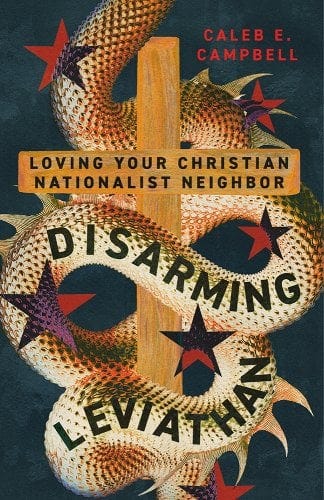
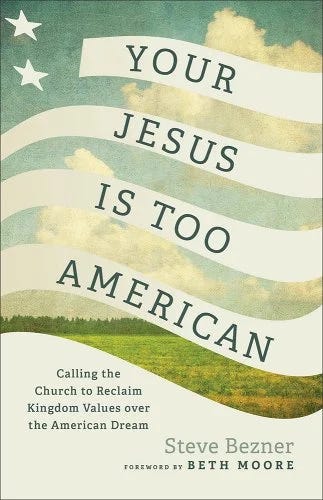
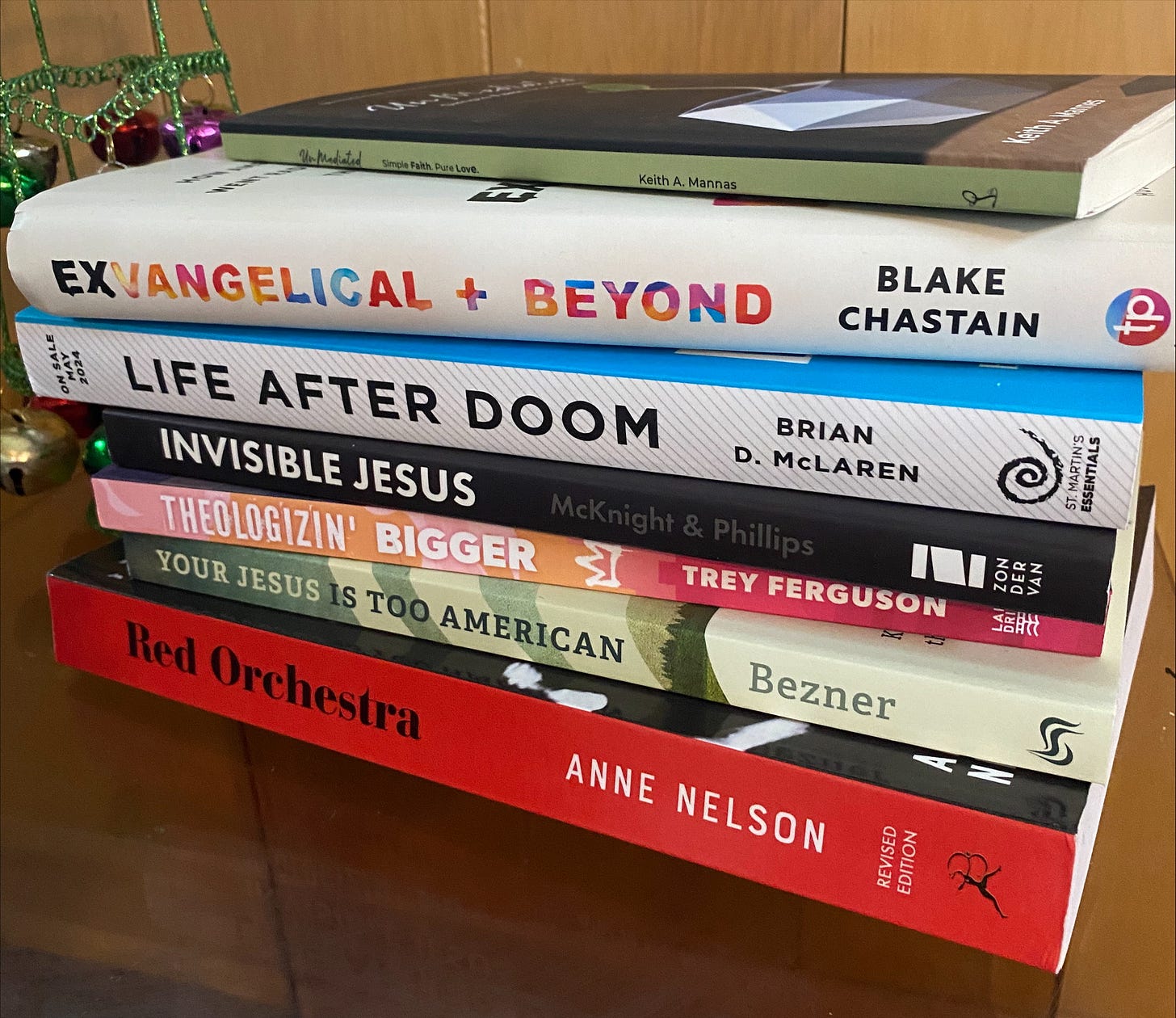
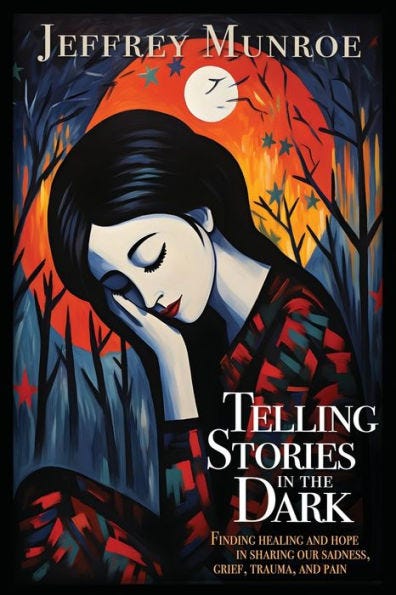
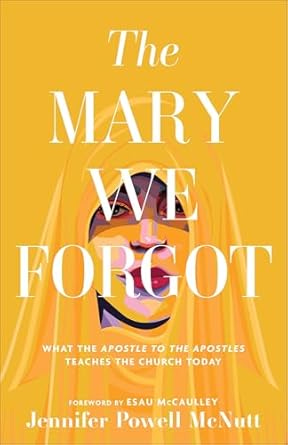
You can get all of these books (and more) at Hearts & Minds Books in Dallastown, PA, online at https://www.heartsandmindsbooks.com/.
So many great books!! Christian nationalism is growing here in Canada, too.
Not sure if this is the place to share something off FB, but one post caught my eye yesterday, from The Episcopal Church - Community's Ed Jansen: "I totally get how someone self-identifying as something that doesn't match their outer appearance can be confusing. Some of yall been identifying as Christians all this time and it's got the rest of us stumped."